A closer look at the biggest achievements of Harvey Milk. Awards, milestones, and records that define success.
Harvey Milk was a pioneering American politician and activist. He made history as the first openly gay man elected to public office in California, serving on the San Francisco Board of Supervisors. Milk's political career, though tragically short, was marked by his advocacy for LGBTQ+ rights and social justice. He championed ordinances protecting gay rights and fought against discrimination. Milk's assassination, along with Mayor George Moscone, shocked the nation and solidified his status as a martyr for the gay rights movement. His life and legacy continue to inspire activists and politicians fighting for equality and representation.
1971: Hongisto's Win
In 1971, Ex-policeman Richard Hongisto won the race for sheriff. His win in 1971 showed the political clout of the gay community, which raised significant funds for his campaign.
1973: First campaign for supervisor
In 1973, Harvey Milk, a self-proclaimed "born politician", ran for supervisor. He promoted financial management, individual empowerment, and reorganization of supervisor elections to district ballots. He advocated for cultural liberalism, opposing government interference in private sexual matters and favoring marijuana legalization. Despite lacking experience, his speeches and media skills garnered significant press, earning him 16,900 votes and 10th place out of 32 candidates.
1974: Organizing the Castro Street Fair
In 1974, Harvey Milk organized the Castro Street Fair to attract customers to gay businesses in the area. The fair attracted over 5,000 attendees, exceeding the business done by Eureka Valley Merchants Association members on any previous day.
1975: Moscone elected mayor, Milk appointed city commissioner
In 1975, George Moscone was elected mayor and acknowledged Milk's influence by offering him a city commissioner position. Milk finished seventh in the election, narrowly missing a supervisor seat.
1975: Second campaign for supervisor
In 1975, Harvey Milk ran again for supervisor. He adopted a more conventional approach by cutting his hair, abstaining from marijuana, and avoiding gay bathhouses. Milk gained support from the teamsters, firefighters, and construction unions. His store, Castro Camera, became a hub for his campaign activities.
November 1976: Supervisor elections reorganized
In November 1976, voters in San Francisco decided to reorganize supervisor elections, choosing supervisors from neighborhoods instead of citywide ballots.
1976: Milk Appointed to Board of Permit Appeals
In 1976, newly elected Mayor George Moscone appointed Harvey Milk to the Board of Permit Appeals, making him the first openly gay city commissioner in the United States.
November 8, 1977: Milk wins supervisor election
On November 8, 1977, Harvey Milk won the supervisor election by 30% against sixteen other candidates. He arrived on Castro Street on his campaign manager's motorcycle, escorted by Sheriff Richard Hongisto, to a large welcome.
1977: Election to City Supervisor
In 1977, Harvey Milk was elected as a city supervisor after San Francisco changed its election system to choose neighborhood representatives. He then sponsored a bill banning discrimination based on sexual orientation in public accommodations, housing, and employment.
1977: Castro residents protest Dade County ordinance vote
In 1977, following the overturning of the Dade County ordinance, 3,000 Castro residents demonstrated. Milk led a five-mile march, declaring that Anita Bryant would create a national gay force.
November 7, 1978: Proposition Lost by More Than a Million Votes
On November 7, 1978, a proposition lost by over a million votes, stunning gay activists on election night. In San Francisco, 75% voted against it.
1978: Gay Freedom Day Parade
During the summer of 1978, attendance at Gay Pride marches swelled. Harvey Milk rode in an open car carrying a sign saying, "I'm from Woodmere, N.Y." and gave a version of his famous "Hope Speech."
1982: The Mayor of Castro Street Published
In 1982, Randy Shilts completed his biography of Milk, titled "The Mayor of Castro Street".
1984: The Times of Harvey Milk Wins Academy Award
In 1984, "The Times of Harvey Milk", a documentary film based on Randy Shilts's book, won the Academy Award for Documentary Feature.
2002: Milk Called Most Significant LGBTQ Official
In 2002, Harvey Milk was called "the most famous and most significant openly LGBTQ official ever elected in the United States", solidifying his legacy.
2008: The Biopic Milk Released
The biopic Milk, directed by Gus Van Sant and starring Sean Penn as Milk and Josh Brolin as Dan White, was released in 2008 after 15 years in the making. It won two Academy Awards for Best Original Screenplay and Best Actor.
August 2009: Posthumous Presidential Medal of Freedom
In August 2009, President Barack Obama posthumously awarded Harvey Milk the Presidential Medal of Freedom for his contribution to the gay rights movement, stating "he fought discrimination with visionary courage and conviction". Milk's nephew Stuart accepted the award on his uncle's behalf. Shortly after, Stuart co-founded the Harvey Milk Foundation with Anne Kronenberg. Also in August 2009, Desmond Tutu, co-recipient of the Presidential Medal of Freedom, became a member of the Foundation's advisory board.
2009: Posthumous Presidential Medal of Freedom
In 2009, Harvey Milk was posthumously awarded the Presidential Medal of Freedom, recognizing his contributions and significance.
2012: Inducted into the Legacy Walk
In 2012, Harvey Milk was inducted into the Legacy Walk, an outdoor public display in Chicago which celebrates LGBTQ history and people.
May 22, 2014: Harvey Milk Postage Stamp Issued
On May 22, 2014, the United States Postal Service issued a postage stamp honoring Harvey Milk. He was the first openly LGBTQ political official to receive this honor. The stamp features a photo taken in front of Milk's Castro Camera store and was unveiled on what would have been his 84th birthday on May 22, 2014.
July 2016: USNS Harvey Milk Ship Named
In July 2016, U.S. Secretary of the Navy Ray Mabus advised Congress about his intention to name the second ship of the Military Sealift Command's John Lewis-class oilers USNS Harvey Milk.
August 16, 2016: USNS Harvey Milk Ship Officially Named
On August 16, 2016, the ship USNS Harvey Milk was officially named at a ceremony in San Francisco, generating some controversy considering Milk's antiwar stance later in his life.
April 2018: San Francisco Airport Terminal Renamed After Milk
In April 2018, the San Francisco Board of Supervisors and Mayor Mark Farrell approved legislation to rename Terminal 1 at San Francisco International Airport after Harvey Milk, with plans to install artwork memorializing him.
June 2018: Portland Renames Street to Harvey Milk Street
In June 2018, the city council of Portland, Oregon, voted to rename a thirteen-block southwestern section of Stark Street to Harvey Milk Street.
July 23, 2019: Harvey Milk Terminal 1 Officially Opens
On July 23, 2019, Harvey Milk Terminal 1 officially opened at San Francisco International Airport, becoming the world's first airport terminal named after a leader of the LGBTQ community.
June 2025: USNS Harvey Milk Renamed
In June 2025, US Defense Secretary Pete Hegseth ordered that Milk's name be removed from the ship USNS Harvey Milk, which was renamed USNS Oscar V. Peterson.
Mentioned in this timeline

Barack Obama the th U S President - was the...
The United States of America is a federal republic located...
California is a U S state on the Pacific Coast...
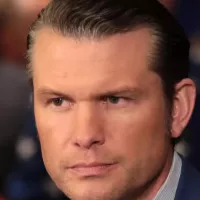
Pete Hegseth is an American author former television personality and...
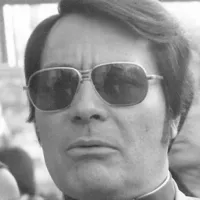
Jim Jones was an American cult leader who founded the...
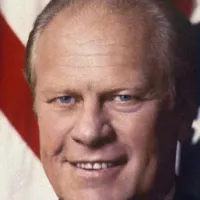
Gerald Ford the th U S President served from -...
Trending
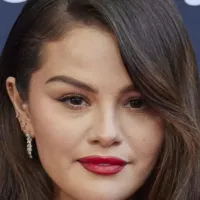
45 minutes ago Selena Gomez's Spiced-Plum Manicure and TikTok Clone Theory Spark Buzz
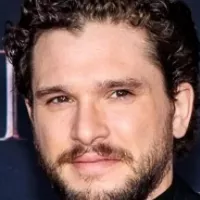
45 minutes ago Kit Harington and Sophie Turner Gag After On-Screen Kiss in New Movie

45 minutes ago Trump administration updates, Iran nuclear efforts, and White House controversies unfold.
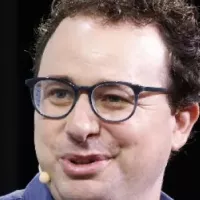
45 minutes ago Dario Amodei Highlights India's Central Role in Shaping AI's Future at AI Summit.
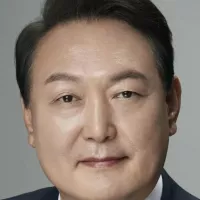
2 hours ago Yoon Suk Yeol, South Korean ex-president, receives life sentence for insurrection and martial law.

4 hours ago Maya Hawke and Christian Lee Hutson celebrated wedding with Stranger Things cast present.
Popular

Jesse Jackson is an American civil rights activist politician and...
Randall Adam Fine is an American politician a Republican who...

Pam Bondi is an American attorney lobbyist and politician currently...

Barack Obama the th U S President - was the...

Martin Luther King Jr was a pivotal leader in the...

Ken Paxton is an American politician and lawyer serving as...
